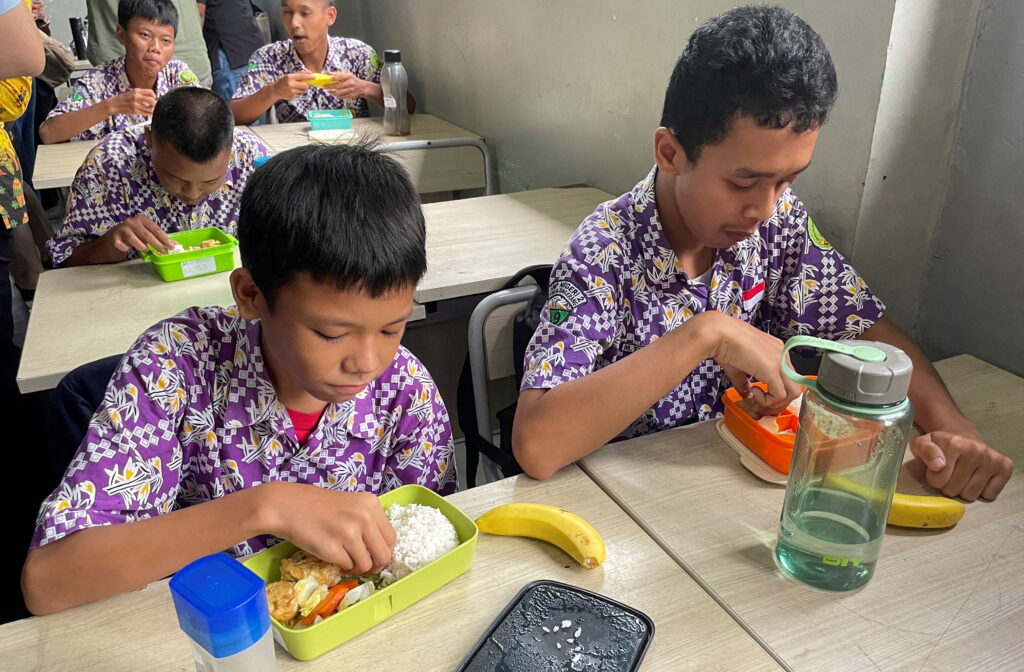As each new government assumes office in Indonesia, there is a surge of fresh initiatives, notably centred on improving social protection programs. These endeavours aim to assist the underprivileged and guide them out of poverty towards economic empowerment. But as implementation begins, it is crucial to address key aspects like budget allocation, beneficiary identification, efficient disbursement and broader impact.
When President Joko ‘Jokowi’ Widodo came to power in 2014, Indonesia witnessed transformative social protection initiatives. This included providing targeted cash assistance to low-income households, offering grants and scholarships for students from underprivileged families and covering health insurance premiums for 97 million individuals. The second term of Jokowi’s cabinet in 2019 ushered in the Kartu Prakerja Program, to enhance workforce competence and foster entrepreneurship.
Indonesia has steadfastly committed to social protection, allocating an average of 16 per cent of the state budget from 2013–23. In 2024, with a total state budget of US$216 billion, approximately 15 per cent has been earmarked for social protection programs. This sustained investment has contributed to remarkable progress in poverty alleviation, with the extreme poverty rate decreasing from 7.3 per cent in 2013 to 1.5 per cent by 2023. Indonesia’s ambitious target of eradicating extreme poverty by 2024 reflects its dedication to fostering inclusive growth.
The largest portion of the budget allocated to social protection is directed towards energy subsidies — totalling US$12 billion — equivalent to 38 per cent of the allocated social protection budget. These subsidies encompass essential needs such as fuel, cooking gas and electricity. The remaining funding is allocated to other programs, including non-energy subsidies, national health insurance, food assistance and conditional cash transfers.
Indonesia has made significant strides in advancing its social protection disbursement, through integrating the social welfare database with the national identification database, targeting the bottom 40 per cent of the population to identify and reach those in need. The country has also embraced the digital transformation in its social protection disbursement, transitioning from cash to savings accounts and from in-kind to e-vouchers, improving efficiency and transparency.
Incoming Indonesian leaders are set to launch the free lunch program, providing complimentary meals to school students, children under five years of age and pregnant women. The primary goal is to address stunting by providing nutritious meals and to ease the financial burden on low-income households by covering meal costs. The program also aims to stimulate economic opportunities by supporting small-scale farmers and local food producers to improve food security. The expansion in the food sector is expected to create more job opportunities, contributing to overall economic development.
To provide meals for 82.9 million school children at full scale, this program will necessitate 6.7 million tons of rice, 1.2 million tons of chicken, 500 thousand tons of beef, 1 million tons of fish, various vegetables, fruits and 4 million kilolitres of fresh milk. Sustaining this initiative could require up to US$28.5 billion annually. To kick-start operations in its inaugural year, initial funding of up to US$7.6 billion — equivalent to 3.5 per cent of the state budget in 2024 — is required.
Free school lunch programs have been implemented in 76 countries, benefitting 418 million children worldwide by providing essential meals. The impact extends beyond sustenance, acting as a catalyst for positive change. It stimulates agricultural production, bolstering local economies and creating millions of jobs, especially for women in roles such as cooking and catering. These programs also enhance education outcomes, evidenced by increased student enrolment, improved attendance rates and enhanced student retention.
Finland led the charge in 1943 by introducing free school meals. Central to its success is the collaborative spirit and trust shared among authorities, municipalities and schools. Financed through taxes, the responsibility of meal provision rests with local communities. With a sophisticated kitchen management system, Finland ensures compliance with nutritional and financial standards. Students are empowered to provide feedback on the meals served, ensuring continuous improvement and responsiveness to their needs.
Lessons from other nations, especially developing countries, show that limited resources, infrastructure and competing priorities hinder program success and sustainability. Corruption and mismanagement also impede progress, exacerbating the situation. Geographical barriers — like remote locations — create logistical challenges in accessing food provisions, while diverse cultural nuances and dietary preferences require careful consideration in program design. Inadequate public awareness and advocacy worsen these challenges — highlighting the need for comprehensive strategies.
Indonesia may not face a substantial obstacle in initiating the program’s budget, given that discussions concerning budget allocation have already started in Jakarta. But effective disbursement will necessitate integrated strategies and collaboration among various stakeholders. Drawing from the experiences of other countries and tailoring approaches to Indonesia’s context could enhance the design and implementation of this initiative.
As Indonesia embarks on the next phase of its social protection journey, it is crucial to recognise the transformative potential of these programs beyond poverty alleviation. The time has come to view social protection as a contributor to economic growth, not just a safety net for the vulnerable. The next cabinet has a historic opportunity to redefine the role of social protection in Indonesia’s development agenda.
Hilman Palaon is Research Fellow in the Indo-Pacific Development Centre at the Lowy Institute.


Indonesia has shown a continued commitment to social protection programs, with an average of 16 per cent of the state budget allocated from 2013–23, facilitating significant poverty reduction. New initiatives focus on education, health insurance and workforce competence. The latest proposed scheme is a free lunch program aimed at addressing malnutrition, easing the financial burden on low-income families and stimulating local economies. The time has come to view social protection as a contributor to economic growth, not just a safety net for the vulnerable.